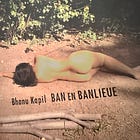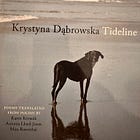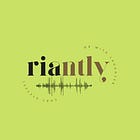In starting poetry readings, my intention is less to be authoritatively defining what is / isn’t the point of the works and poems involved, nor is it to be definitive with what I strive for you all to takeaway from this work.
Instead, I find listening to poetry to be a profoundly meditative practice, and I hope that these readings can offer a few minutes of eyes-closedness contemplating images, language, or just emptying your head from the stressors of the day’s events. After all, the point of language and a fixation on it is to captivate. Language must strive to steal your attention. But instead of capitalist theft or theft as a disempowering, language is a deconstructive thief attempting to unburden the day’s rigid structure which bruises your flowing creativity demanding expansion.
As I continue this practice of reading poems and thinking with the space behind the poem, I hope that you might take some solace in the rest that this might offer you. What does it say about our days that some five or ten minutes of intentional attention seems so hard to give? And what would it then say about us should we choose to give anyway? Try to draw squares with your shoulders, before continuing. Up-back, up-forward, down-forward, down-back. After a few cycles in each direction, settle with them relaxed. Try to uncrane your neck. These are two physical access points to allow poetry in.
How many lives do you live in a day? And how many lives do you live in a life? The spirits of history’s wrongdoings occupy your every thought, every action. Kapil seems to ask what is the end of a poem and the answer from these poems is never, nowhere, no body. Or, the poem ends with the death of the imagination — that you can no longer imagine the poem, you can no longer feel the land’s history unraveling an implicit violence with each of your steps.
There was a time when I was maybe eleven years old and thought I’d seen the worst the world could possibly offer me where I was playing basketball alone for hours without making a shot, and I hit a point where I set the ball down and clasped my hands together in prayer, asking some divinity that if they existed they would at least let me make one shot. I then made the following shot and spent some near-decade believing in the power of ritual in invoking divinity. I suck at basketball and frankly abhor sports, but will always be grateful for the revelation-toward-belief that there is something akin to power in this world outside of money and social energies. I am grateful for those who share their bravery in depicting their relationship with these divine powers. Grateful and learning, ever learning.
Is it possible for something to exude excellence without championing some niche? Dąbrowska's Tideline tr. by Antonia Lloyd-Jones, Mira Rosenthal, and Karen Kovacik is compelling, balances the line between serious poetry and light epigraphs, and does not stick to a singular length or form. The unifying factor of Dąbrowska's poetry is voice, and even then, voice is such an incongruous, fluid thing. But perhaps that’s the point of a collection titled Tideline — to verge along the boundary between fluid and solid, to make unsteady without threatening, and to capture one’s senses being enveloped.
Baranda’s Nightmare Running on a Meadow of Absolute Light, tr. by Paul Hoover, is an absolutely fascinating collection to me. It is composed of two poems each some thirty pages or more. Purely from a publisher’s composition perspective, I so rarely see individuals being given the space to elongate their poems at all, and when they are granted this privilege, typically the result is ‘Read this book length poem from -author already known for several more digestibly smaller works-.’ To see two poems in conversation like this, I think of structure: what is the implicit conversation being offered between the two poems? Is one intended to read these continuously, or with a break between? If a break, how long of a break? The titles are To Hell and Nightmare Running on a Meadow of Absolute Light, is the nightmare running from hell, escaped? Baranda’s works have always drawn so many questions from me. Questions that I don’t necessarily wish to answer, but that I enjoy the provocation of.
Having passed away some five years ago, Rosenberg was a trailblazer of Argentine poetry. Interior Landscape by Mirta Rosenberg tr. by Yaki Setton and Sergio Waisman is a book of wonders, poking at the depths of one’s thoughts and prodding them until they reveal further thoughts. Like how you may split an apple to reveal its seeds, what is revealed upon splitting the seed? And further yet? Does the poem’s conclusion rest on splitting an atom or does it achieve some dimensionality distinct from scientific measurements. In this case, I find Rosenberg’s splitting of thoughts to evoke in the way that wind might split a field of tall grass.
What is there to say of Etel Adnan? What isn’t? My regret with Adnan is that I hadn’t found her sooner. My regret with Adnan is that more have not read her. A type of sorrowful joy blossoms between my fingers when I read a post shared by Brandon Shimoda of an email Adnan had sent him at one point or another. Time by Etel Adnan tr. Sarah Riggs is full with the collapsing intimacies which pervade Adnan’s work. I think of this Bethany Mary paragraph from a Vagabond City Lit review of her work published (narcissistically, on my birthday):
Many of us are just gathering dust here, half-awake and not appreciative enough of our lives, leading a somewhat melancholic existence. We don’t have an inkling of what we’ve missed or what we’re waiting for. The earth as we know it is dying, but we don’t have many solid facts about what to expect next, in the grand scheme of things. “We’re in the universe, but don’t really know where we are,” Adnan points out. There is much we cannot be certain of, but there is much we can value regardless.
Something to know of Hilda Hilst is her overwhelming commitment to her beliefs and her artistry. She founded an artist residency on her property known as House of the Sun, experimented with listening to and interpreting the voices of the dead through electronic voice phenomenon, and published some 40 works of poetry, plays, and fiction. Of Death. Minimal Odes. by Hilda Hilst and tr. by Laura Cesarco Eglin is one of those rare works which one could read all number of times and notice something unique about it. I swear, the language within shapeshifts with the state of who you are when picking up the work. Perhaps best read if you are feeling a little lost yourself, and hopeful for not-quite-direction but something of a path to tread down until you wish to ignore it once more.
The poetry of Rebecca Seiferle is at once confessional and exploratory. Seiferle’s lyric handles with aplomb a type of contemporary Emily Dickinson full with yearning, memory, erotics, femininity, and worship. I first encountered her work while browsing the stacks at Open Books and shortly after picking up Bitters found myself desperately searching for the rest of her collections. Wild Tongue — the collection from which the poem I read appears — is a sprawling work, magnificent in its defiance to the miraculous. In Wild Tongue Seiferle’s utterances are ordinary, on the surface seeming like something you would hear perfectly naturally in conversation should you be sitting in a dear one’s living room over coffee. Yet within this lyric is an ageless wisdom.
Genevieve Kaplan’s Aviary is a stunning work full of inquiry and presence. The poems within have reoriented my thinking when finding birds outside, interpreting their comradery, and listening to their seductions. Furthermore, Kaplan’s lyric is a resettling of the need to think more about what is ever-collaborating within your surroundings, within you. If every landscape is a psychic structure, the language found when the windows are propped open comes in the form of the leftovers that birds have pecked through.
Just Like by Lee Sumyeong tr. Colin Leemarshall is a collection which inspired me to read aloud at all. Flipping through the pages of the book, the lyric was so approachable that it made language dance from my mouth. In my first efforts, I was bashful about having more or less presence when offering these readings, but nevertheless, the poems here are incredible. Lee Sumyeong and Colin Leemarshall have achieved extraordinary results from their collaboration here, with a lyric that seems effortless in the same way as a fine macaron. Full with color and adaptive to any desired flavors, yet concise and simple in design.
If you enjoy these readings, or wish for something different from them, please let me know. I’d love to hear your thoughts, audio can be such an immensely particular subject, and I do so wish to offer you something that delights.













